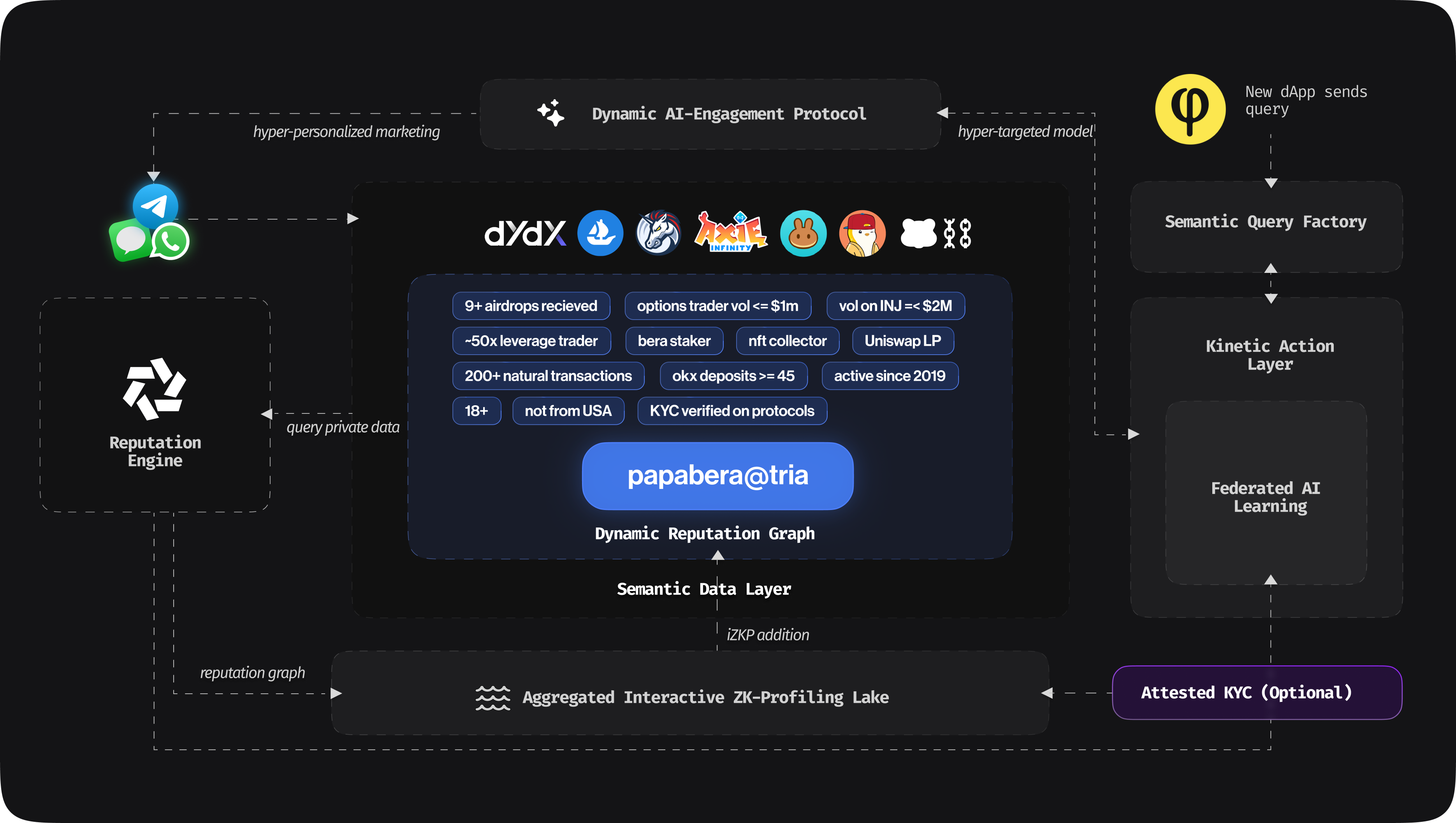Aggregated Interactive ZK Reputation and Credentials
This is a research based on our internal experimentation and analysis of publicly available information and may contain interpretations or simplifications for clarity. The presented concepts and interpretations are not intended to claim intellectual property (IP) rights. Additionally, the information provided may not encompass all relevant details.

Motivation
Zero-Knowledge Proofs (ZK-Proofs) have emerged as a powerful cryptographic tool for enhancing user privacy in blockchain ecosystems. ZK-Proofs allow individuals to prove possession of certain information (like on-and-off-chain data, usage or membership in a group) without revealing the underlying details. This offers significant advantages for user privacy and selective disclosure of information.
This research explores the concept of Aggregated Interactive ZK-Reputations and Credentials (AIZK-RC), a potential paradigm for user-centric identity management and marketplace using Tria's Decentralized Identities. AIZK-RC leverages interactive ZK-Proofs to create a system where users can control the disclosure of their credentials and reputation data while enabling rich interactions within decentralized applications (dApps). These Zero-Knowledge Proofs are an implementation of Fully-Homomorphic Encryption Credentials and are not fully tested in multiple environments.
Usage
Current blockchain-based reputation and credential systems often face limitations regarding reputation fragmentation on multiple chains and wallets. AIZK-RC proposes a system where users hold cryptographically verifiable credentials that represent their aggregated attributes and reputation from Tria based DIDs constituting EVM, and Non-EVM wallet data including on-and-off-chain dapp usage. These credentials can be issued by trusted entities or earned through participation in dApps.
The interactive aspect of AIZK-RC allows for the selective disclosure of specific attributes based on a dApp's requirements. This ensures users maintain control over their data while enabling them to meet the needs of different applications. The second vision is to create a marketplace where a dApp can query multiple users' iZK reputation via a Query Lake to deliver targeted advertisements and CTAs via on-chain or in-wallet interaction channels.
Experimentations
We explored the feasibility of integrating zero-knowledge (ZK) proofs into an iOS application. We utilized Mopro, a library enabling custom Circom ZK circuits on iOS. However, challenges arose during the installation and linking of the Foreign Function Interface (FFI) library. While it functioned flawlessly on an M1 Mac, compilation failed on the developer's x86 (older generation) Mac. This roadblock necessitated leaving the ZK circuit unmerged.
Furthermore, to streamline the setup process, we forked and modified Mopro, eliminating unnecessary compilations. For compatibility with Mopro, we employed keras2circom, a tool generating Circom circuits from Keras models. Similar to Mopro, we forked and modified Keras2circom to accommodate models with slight variations. Notably, we incorporated a ReLU activation layer on a single dimension.